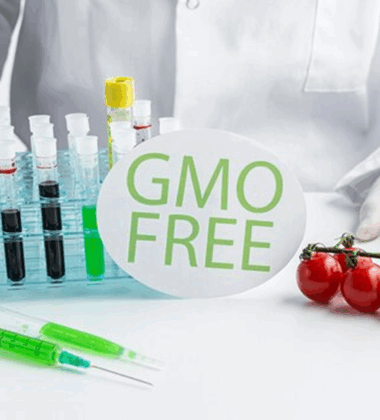Nutrition is no longer one-size-fits-all. From DNA-driven diets to adaptive meal kits, the next frontier in food innovation is deeply personal. At the Food and Beverage Expo USA, one clear message emerged: bio-individual nutrition is reshaping how we think about food, from formulation to marketing, from retail shelves to R&D labs.
In this article, we explore what bio-individual nutrition means, why it’s trending, and how food brands, dietitians, and exhibitors can respond strategically to this seismic shift in consumer expectations.
What Is Bio-Individual Nutrition?
Bio-individual nutrition refers to a nutrition model that takes into account each person’s unique biological makeup. Unlike traditional dietary guidelines that generalize nutrient needs, this approach recognizes that factors such as genetics, microbiome composition, lifestyle, metabolism, and even circadian rhythm all influence what foods are most beneficial—or harmful—for an individual.
This philosophy is built on several foundational principles:
- There is no universal “best” diet.
- Metabolism and nutrient requirements vary from person to person.
- Personal data should inform nutritional choices.
- Food should adapt to the individual, not the other way around.
The rise of wearable technology, gut microbiome testing, and continuous glucose monitors has made it possible to collect personal health insights at scale, giving rise to the era of smart meals and nutrient timing strategies.
The Rise of Personalized Formulations at the Food and Beverage Expo USA
At this year’s Food and Beverage Expo USA, personalization was more than a buzzword—it was a product development mandate. Exhibitors showcased everything from AI-driven meal planning platforms to nutrient-enhanced snack bars tailored to genetic profiles.
Noteworthy innovations included:
1. DNA-Based Meal Kits
A startup presented meal kits customized to an individual’s nutrigenomics profile. After submitting a simple saliva test, users receive recipes and ingredients tailored to their vitamin absorption tendencies, food intolerances, and metabolic rate.
2. Gut-Responsive Snacks
A probiotic snack company featured bars that change formulation based on gut microbiome sequencing. Using a proprietary app, users scan their test results, and the system generates a custom ingredient blend optimized for their gut health status.
3. Circadian-Aligned Meal Plans
A meal delivery service introduced a line of dishes that follow chrononutrition principles—aligning nutrient timing with circadian biology to optimize digestion, hormonal balance, and energy levels throughout the day.
Why Bio-Individual Nutrition Matters Now
The surge in demand for bio-individual nutrition is driven by several converging forces:
- Health Personalization Expectations: Consumers are used to algorithms curating their content, products, and experiences. Food is the next frontier.
- Chronic Health Conditions: A rise in metabolic syndrome, food sensitivities, and autoimmune disorders has led many to seek more personalized dietary guidance.
- Technology Adoption: Affordable at-home testing and health-tracking wearables have made it easier for the average consumer to access real-time data about their bodies.
- Skepticism Toward Generic Diets: The failure of mass diets to yield long-term results has caused a shift toward highly individualized strategies.
According to a 2024 industry report by Global Nutrition Insights, 73% of consumers say they are interested in food and beverage products designed specifically for their personal health needs.
The Science Behind Personalized Formulation
To formulate truly personalized food products, developers must consider a range of bio-individual inputs, such as:
- Genetic Variants: Certain polymorphisms (e.g., MTHFR, APOE) influence how nutrients are processed.
- Microbiome Composition: The balance of gut bacteria can determine tolerance to fibers, starches, and sugar alcohols.
- Hormonal Profiles: Sex hormones and cortisol rhythms impact hunger, metabolism, and nutrient absorption.
- Activity Levels and Sleep: Movement and rest cycles influence macronutrient needs and timing.
Nutrient timing—the strategy of eating certain foods at specific times based on metabolic state—is also gaining traction in sports nutrition and biohacker circles. Some exhibitors at the expo displayed pre- and post-workout meal kits personalized for insulin sensitivity and energy demands.
Bio-Individual Nutrition and Product Development: New Rules
For product developers, formulating for bio-individuality presents both opportunities and challenges.
Opportunities:
- Higher consumer trust and brand loyalty
- Premium pricing for customization
- Subscription models and DTC integration
- Partnerships with health tech platforms
Challenges:
- Data privacy and compliance (HIPAA, GDPR)
- Manufacturing complexity (batch variability)
- Shelf life for fresh or made-to-order formulations
- Scientific validation and regulatory approval
Despite these hurdles, many exhibitors at the Food and Beverage Expo USA are embracing modular product design. This base product can be easily adapted with functional add-ons depending on the consumer’s profile.
Marketing Bio-Individual Nutrition to Gen Z and Millennials
Today’s consumers—especially younger demographics, demand more from their food. They want transparency, functionality, and personal relevance. To market bio-individual nutrition effectively:
- Use language of empowerment, not restriction. Focus on enhancing energy, clarity, and longevity.
- Educate consumers on how personalization works and what data is used.
- Integrate smart packaging, like QR codes linking to individual nutrient profiles or ingredient traceability platforms.
- Collaborate with health influencers, dietitians, and wellness communities to build credibility.
Many booths at the expo featured interactive feedback kiosks, allowing attendees to scan their wearable health data and receive live product recommendations. This type of real-time personalization is expected to be a key trend in both e-commerce and in-person retail experiences.
The Role of Dietitians and Exhibitors
For dietitians, bio-individual nutrition opens new territory for collaboration with food companies. Registered dietitians are uniquely positioned to translate health data into actionable dietary recommendations, helping brands create medically responsible and functionally effective products.
Exhibitors, meanwhile, should consider how to highlight personalization at trade shows:
- Offer sample formulations based on quick health quizzes.
- Showcase ingredient adaptability (e.g., customizable protein, fiber, or sweetener types).
- Provide case studies demonstrating health outcomes from personalized products.
Future Directions in Personalized Nutrition
Looking ahead, the bio-individual revolution is likely to evolve along several key pathways:
- Integration with epigenetic testing to tailor foods based on gene expression.
- AI-powered recipe generators using live biometrics from wearables.
- Smart kitchens that adjust cooking methods based on user health goals.
- Blockchain-based health passports for food access and optimization during travel.
Brands that invest in R&D and collaborate with health tech companies will gain a first-mover advantage in this rapidly expanding space.
Final Thoughts
Bio-individual nutrition is more than a passing trend—it represents a fundamental shift in how we approach food formulation, marketing, and delivery. As evidenced by the innovation showcased at the Food and Beverage Expo USA, brands that embrace personalization will meet rising consumer expectations and unlock new levels of engagement, trust, and profitability.
Food, at its best, should serve the individual. In 2025 and beyond, that statement will no longer be philosophical—it will be scientific, data-driven, and scalable.





